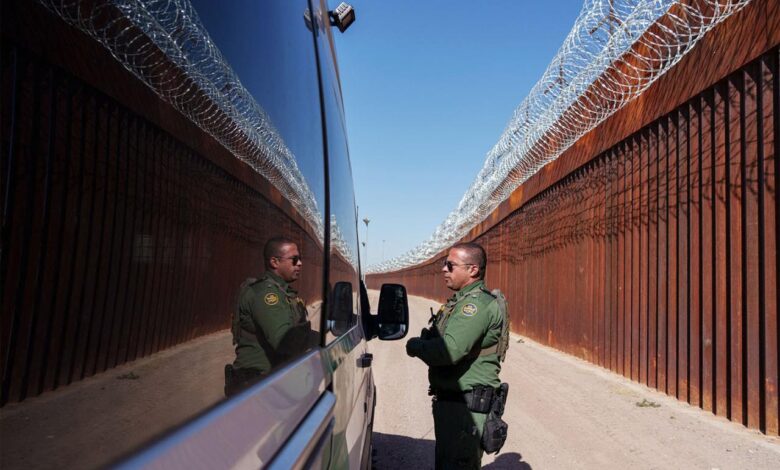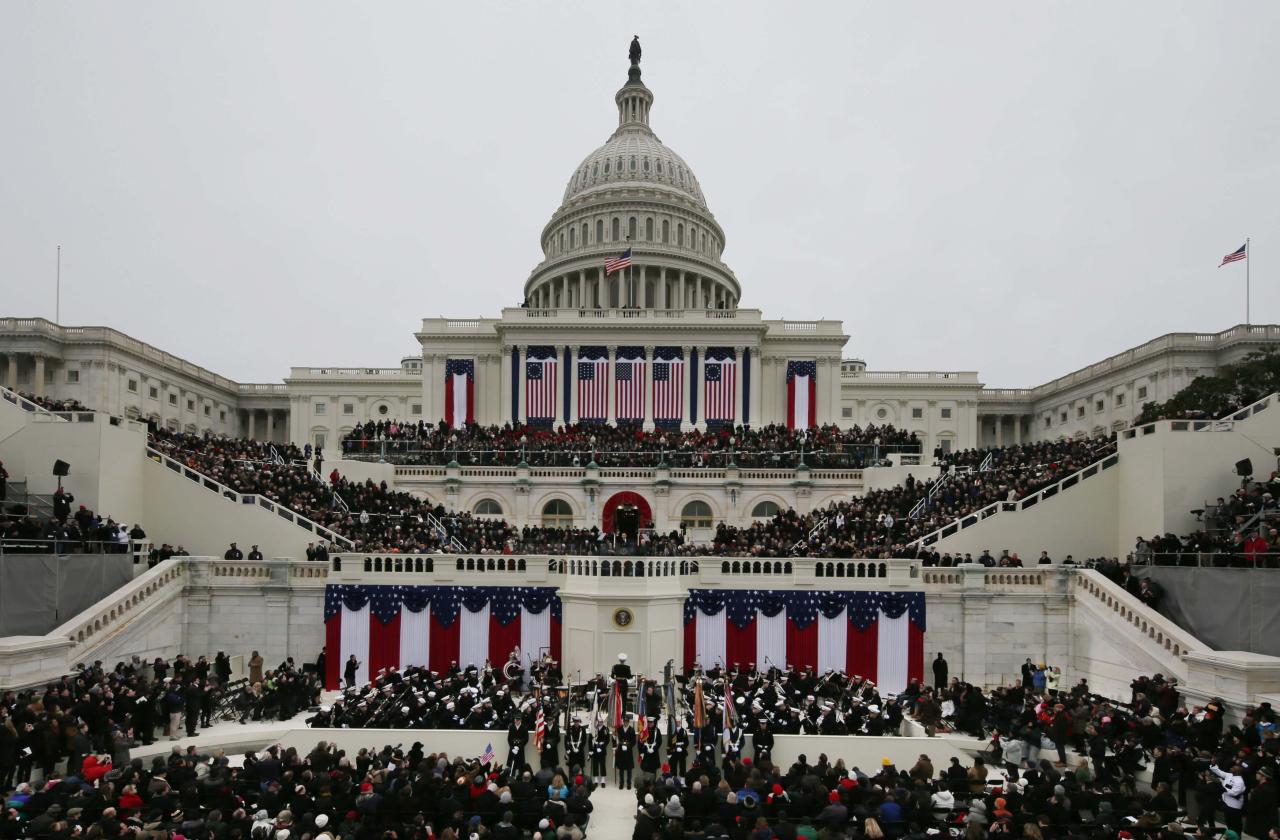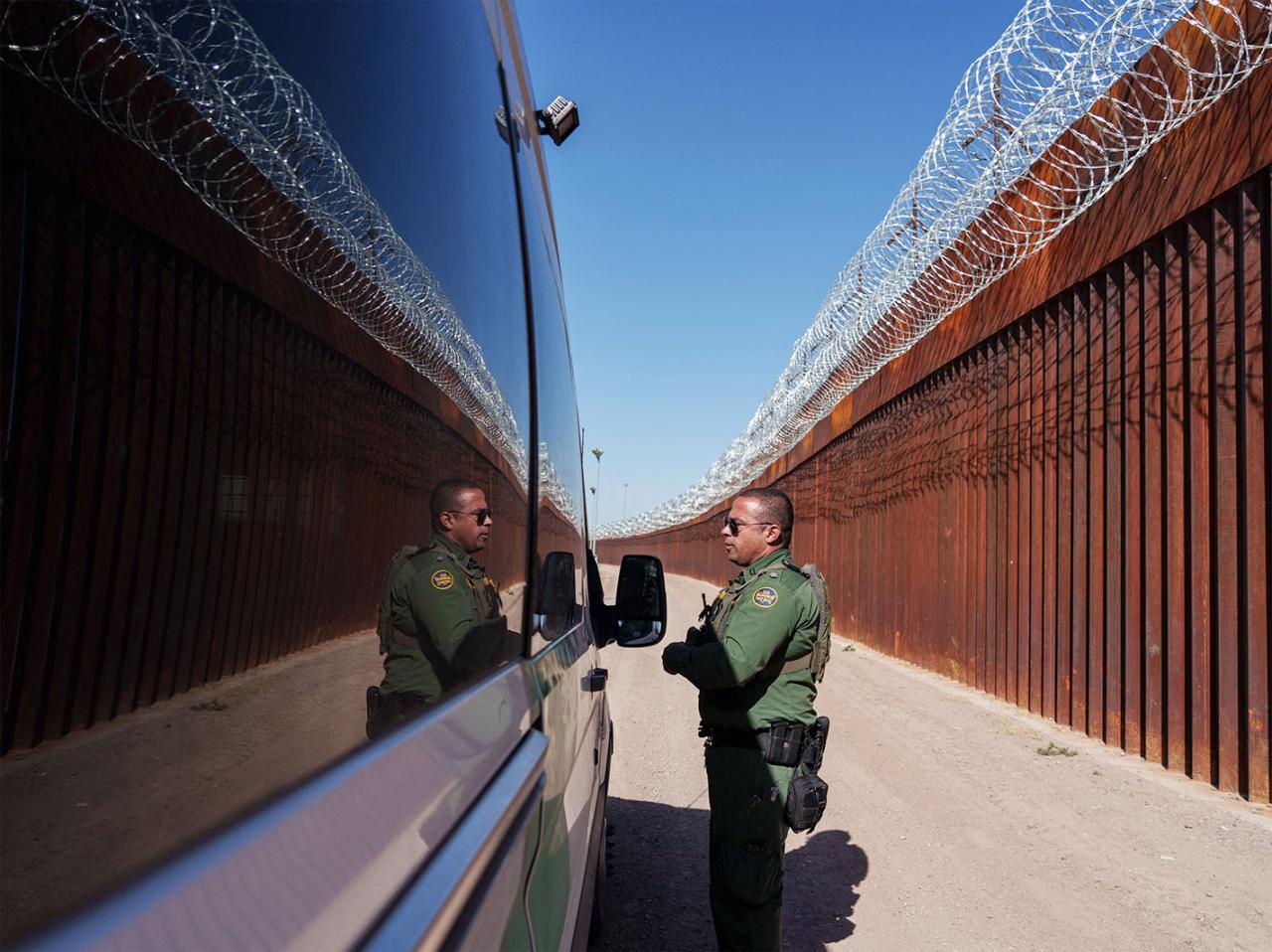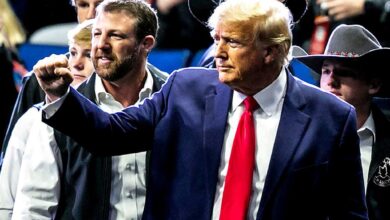
Republicans Immigration Border Fact Check
Republicans Immigration Border Fact Check: Examining the claims and policies surrounding immigration at the US border. This deep dive explores Republican stances on border security, legal immigration, and undocumented immigrants, scrutinizing their rhetoric and proposals against verifiable facts. We’ll delve into the historical context, potential economic impacts, and how these policies are portrayed in the media.
This analysis will systematically examine common Republican arguments, presenting both sides of the issue with supporting evidence. We’ll highlight specific claims and evaluate their accuracy, comparing Republican approaches to those of other political parties. Expect a comprehensive look at the nuances of this complex issue.
Republican Immigration Policies
Republican stances on immigration have been consistently shaped by a blend of economic concerns, national security priorities, and cultural values. These stances often reflect a desire for stricter border controls and a preference for legal immigration pathways. Understanding the evolution of these policies is crucial for comprehending the current political landscape and debates surrounding immigration reform.
Common Republican Stances on Immigration
Republican viewpoints on immigration are multifaceted, encompassing border security, legal immigration processes, and the treatment of undocumented immigrants. A common thread often woven through these stances is a focus on preserving American sovereignty and national interests.
- Border Security: Republicans generally advocate for enhanced border security measures, emphasizing the need to prevent illegal immigration. This includes increased border fencing, enhanced surveillance technologies, and more border patrol agents. The rationale often centers on the idea that strong borders are essential for national security and the rule of law.
- Legal Immigration: Republican approaches to legal immigration often emphasize merit-based systems, prioritizing skilled workers and those with family ties in the United States. While supporting legal immigration, there are varying views on the number of visas granted for various categories and the processes for obtaining them.
- Undocumented Immigrants: Republican stances on undocumented immigrants often involve a mix of views, ranging from calls for enforcement of existing laws to proposals for pathways to citizenship or deportation. A common aspect of these stances is concern for the potential impact of undocumented immigration on the economy and social services.
Historical Evolution of Republican Immigration Stances
Republican views on immigration have undergone shifts throughout history, reflecting changing societal contexts and political priorities.
- Early Republicanism: Early Republican immigration stances were generally more welcoming, focusing on westward expansion and the integration of new populations into the nation. However, with changing social and economic conditions, stances have shifted over time.
- Modern Republicanism: As immigration flows increased, Republicans increasingly emphasized border security and stricter enforcement of immigration laws. Key moments, such as the rise of nativist movements, have contributed to these changes. The evolving political landscape and shifts in public opinion have significantly influenced these shifts.
Legislative Proposals and Bills
Republicans have introduced various legislative proposals and bills regarding immigration, aiming to address specific issues and concerns. These proposals vary in their scope and approach, from tightening border security to creating pathways to citizenship.
| Policy Area | Republican Stance | Supporting Arguments |
|---|---|---|
| Border Security | Increased funding for border wall construction, enhanced surveillance, and increased border patrol staffing. | Stronger borders are essential for national security, preventing illegal immigration, and deterring criminal activity. |
| Legal Immigration | Merit-based immigration systems, prioritizing skilled workers and those with family ties in the US. | These systems will benefit the economy by attracting skilled labor, and the emphasis on family ties strengthens family reunification. |
| Undocumented Immigrants | Proposals for various solutions, including enforcement of existing laws, pathways to citizenship with conditions, and deportation. | These solutions address concerns about the potential impact of undocumented immigration on the economy and social services. |
Republican Rhetoric on Immigration, Republicans immigration border fact check
Republican rhetoric often emphasizes concerns about national security, economic impacts, and cultural preservation. Specific arguments and claims often include the idea that uncontrolled immigration poses a threat to national security, and that it strains public resources and impacts wages.
“Strong border security is paramount to protecting our nation from criminals and terrorists.”
“Uncontrolled immigration puts a strain on our social safety net and impacts American wages.”
Digging into Republican claims about immigration border policies? It’s a hot topic, but fact-checking is crucial. While we’re at it, have you noticed the prices of Pepsi at Carrefour in France? Apparently, france carrefour pepsi prices are fluctuating, which is something to keep in mind as we consider the broader economic factors potentially impacting immigration policies.
Regardless of the price of soda, the accuracy of Republican claims about the border situation still needs thorough investigation.
Border Security Measures

Republican Party approaches to border security often emphasize a combination of physical barriers, increased enforcement, and technological advancements. These strategies aim to deter illegal immigration and enhance national security. However, the effectiveness and societal impact of these policies remain a subject of ongoing debate.Republican proposals for border security are frequently presented as crucial for maintaining national sovereignty and protecting the country from potential threats.
The perceived need for stronger borders often outweighs concerns about potential economic or social consequences, though these aspects are sometimes addressed in supporting arguments. Different Republican politicians may emphasize different aspects of the proposals, leading to variations in the specific details.
Republican Approaches to Border Security
Republican strategies for border security typically involve a multifaceted approach. Key elements include constructing and reinforcing physical barriers, augmenting border patrol personnel, and deploying advanced technologies.
- Physical Barriers: Republican proposals frequently advocate for the construction or expansion of physical barriers along the border, such as walls and fences. The justification often centers on the idea that these barriers will impede illegal crossings. The effectiveness of these measures in reducing illegal crossings and the environmental impact are often debated.
- Increased Enforcement: Republicans often propose increasing border patrol agents and other enforcement personnel. This strategy aims to enhance surveillance and apprehension capabilities, deterring individuals from attempting illegal crossings. The potential impact on existing resources and the long-term cost-effectiveness of these measures are factors in the debate.
- Technology Use: Republican platforms frequently highlight the use of advanced technologies, such as drone surveillance, sensor systems, and biometric identification systems. The proponents argue that these technologies can improve detection capabilities and efficiency in border control. The cost of implementing and maintaining these technologies and the potential for privacy concerns are often considered in the debate.
Potential Economic and Social Impacts
The potential economic and social impacts of Republican border security measures are complex and multifaceted.
- Economic Impacts: The construction of physical barriers, hiring additional personnel, and deploying advanced technologies could create job opportunities in the short term. However, the long-term economic costs, including the maintenance of infrastructure and the potential displacement of workers, are often not thoroughly examined. Increased border security measures may also impact trade and economic activity, as well as legal immigration flows.
- Social Impacts: Border security measures can have significant social impacts on communities along the border, as well as on immigrants and their families. The measures may create a climate of fear and mistrust, leading to social tensions and discrimination. The impact on the rights and well-being of migrants and refugees is often a focal point of debate.
Comparison with Other Political Parties
Republican border security proposals often differ from those of other political parties.
- Democratic Approaches: Democratic approaches often emphasize a more comprehensive approach, encompassing addressing the root causes of migration, expanding legal pathways, and prioritizing humane treatment of migrants. They tend to focus less on physical barriers and more on addressing systemic issues.
Public Discourse and Media Coverage
Republican border security proposals are often presented in public discourse and media coverage as essential for national security and sovereignty. The language used frequently emphasizes the need for strong borders and the prevention of illegal immigration. However, the nuanced aspects of the debate, such as the potential social and economic impacts, are not always adequately addressed.
Recent Republican claims about immigration and border security have sparked debate. Digging deeper, the new Hampshire memo from a prominent figure, detailed in the Haley memo new Hampshire , is prompting fresh scrutiny on these assertions. The memo’s contents are likely to influence future political discourse and reshape the ongoing fact-checking of Republican immigration border claims.
Border Security Measures: A Comparative Analysis
| Border Security Measure | Anticipated Costs | Potential Consequences |
|---|---|---|
| Construction of physical barriers | High initial costs, ongoing maintenance costs | Environmental impacts, potential for human rights violations, limited effectiveness |
| Increased enforcement personnel | High operational costs, potential for resource strain | Increased apprehension rates, potential for unintended consequences |
| Technological advancements | High initial costs, ongoing maintenance costs | Potential for privacy concerns, limited effectiveness if not integrated with other measures |
Fact-Checking Specific Claims
Dissecting Republican rhetoric surrounding immigration often reveals misleading or inaccurate statements. This section delves into common misrepresentations, providing factual context and highlighting the potential consequences of such misinformation. Understanding the underlying claims and the evidence refuting them is crucial for informed public discourse.Misinformation in political discourse frequently takes the form of exaggerated claims or selective use of data.
While the Republican immigration border fact check is important, it’s hard to ignore the devastating humanitarian crisis unfolding in Gaza. Recent reports from New York Times journalists, who got a glimpse inside a devastated Gaza here , highlight the urgent need for global action. This perspective reminds us that complex issues like border security are interconnected with broader humanitarian concerns, and a balanced approach is crucial for effective policy.
Political campaigns and public speeches often leverage these tactics to influence public opinion. By examining these claims with verifiable data, we can better understand the motivations behind the rhetoric and its potential impact on policy and public perception.
Common Misleading Statements Regarding Border Security
Republican rhetoric often centers on the idea of a “border crisis,” often exaggerating the scale of illegal immigration and the resulting security threats. This section analyzes such claims and provides factual counterpoints.
- Claims of a significant surge in illegal crossings are often supported by anecdotal evidence rather than comprehensive data. Reports from border patrol agents or news stories focusing on specific incidents are often presented as widespread trends. A more comprehensive analysis of official government statistics is necessary to understand the true scale of the issue.
- The portrayal of the border as “wide open” or “completely unsecured” ignores the significant efforts deployed by border patrol and other agencies. These agencies employ various technologies and personnel to monitor and secure the border, albeit with varying levels of effectiveness. Reporting should acknowledge these efforts and evaluate the effectiveness of current strategies.
- Exaggerated claims about the overwhelming strain on resources often fail to account for factors like funding allocation and personnel deployment. While resource constraints may exist in some areas, a balanced assessment requires considering the total resources available and how effectively they are being utilized.
Impact on Wages and the Economy
Claims about immigration’s negative impact on wages for native-born workers are frequently invoked in political discourse. This section investigates the factual basis for these assertions.
- Economic studies often demonstrate that the relationship between immigration and wages is complex and nuanced. While some studies may point to negative effects in specific sectors or regions, a more comprehensive analysis considers factors like skill levels, labor market conditions, and overall economic growth.
- Claims about immigrants “taking jobs” from native-born workers often ignore the significant contributions immigrants make to the economy, including filling labor shortages and driving economic activity. The creation of new businesses and the overall growth potential should be included in the analysis.
- The potential benefits of immigration to the economy, including increased productivity, innovation, and entrepreneurship, are frequently overlooked in political discourse. These benefits should be recognized as part of the broader economic impact.
Categorized Claims and Evidence
| Claim | Refuting Evidence |
|---|---|
| “Border Crisis” | Official government data showing fluctuating, not consistently high, levels of illegal border crossings; acknowledgment of existing border security infrastructure. |
| “Impact on Wages” | Studies showing complex and sometimes nuanced effects of immigration on wages; consideration of factors like skill levels and labor market conditions; contributions of immigrants to economic growth. |
| “Strain on Social Services” | Data on government funding allocated for social services and analysis of actual usage; comparison with other demographics and economic factors. |
Public Perception and Media Coverage
The media plays a significant role in shaping public opinion, and immigration issues are no exception. How the media frames Republican immigration policies and statements can significantly influence public perception, often leading to polarized views. Understanding these dynamics is crucial for a nuanced understanding of the issue. Republican stances on immigration are frequently portrayed in the media, and these portrayals often reflect the broader political climate and the inherent biases within different news outlets.The portrayal of Republican immigration policies in the media can be complex and multifaceted.
News outlets often highlight specific policy proposals, focusing on their potential impacts and contrasting them with alternative viewpoints. The way these policies are presented can sway public opinion, leading to either support or opposition. This framing, often influenced by the specific political leanings of the news outlet, can significantly affect public understanding of the issue.
Media Portrayal of Republican Immigration Policies
Media coverage of Republican immigration policies often emphasizes border security measures. These narratives may oversimplify complex issues, potentially overlooking the economic and social impacts of these policies. Examples include emphasizing border wall construction without fully addressing the economic costs or humanitarian consequences. The language used can also be crucial. Strong, often emotionally charged, language can create a particular impression on the public, potentially influencing their views on the issue.
Potential Biases in Media Coverage
News outlets, whether intentionally or unintentionally, may exhibit biases in their coverage of Republican immigration policies. These biases can be rooted in the political leanings of the news organization or its reporters, leading to selective reporting or particular framing. Examples of this bias include favoring or downplaying certain aspects of a policy depending on the narrative desired.
Impact of Media Framing on Public Perception
Media framing significantly shapes public perception. By emphasizing specific aspects of Republican immigration policies, the media can create a particular narrative. This narrative may resonate with certain audiences, reinforcing pre-existing beliefs or shaping new ones. The selection of specific issues highlighted and the tone used can influence how the public perceives the complexity of the policies.
Role of Social Media in Shaping Public Opinion
Social media has become a powerful tool for disseminating information and shaping public opinion, particularly regarding Republican immigration policies. The rapid spread of information, often with limited fact-checking, can amplify both positive and negative narratives. The ease of sharing opinions and engaging in online discussions can polarize views on immigration policies. The constant stream of information on social media, combined with the tendency to share emotionally charged posts, can create a feedback loop, reinforcing existing beliefs.
Republican claims about immigration and border security are often hotly debated. While the specifics of these claims are complex, it’s worth considering the broader context, like the ongoing faculty strike at the California State University system. This strike, impacting education for many students, highlights the ripple effects of political decisions and the struggles for resources in various sectors.
Ultimately, a thorough fact check of Republican immigration border claims is crucial for a balanced understanding of the issues. california state university system faculty strike
Table: Media Coverage of Republican Immigration Policies
| Media Outlet | Tone | Focus |
|---|---|---|
| News Source A | Critical | Emphasis on potential negative humanitarian consequences |
| News Source B | Neutral | Balanced coverage of policy proposals and potential impacts |
| News Source C | Supportive | Highlighting border security benefits of Republican policies |
Historical Context and Trends
Immigration has been a defining feature of the United States, shaping its demographics, culture, and economy throughout its history. Understanding this historical context is crucial to comprehending current Republican stances on immigration. The nation’s immigration policies have evolved significantly, often reflecting the prevailing political and social climate of the time.Immigration patterns have shifted throughout US history, with waves of immigration driven by various factors, from economic opportunity to escaping persecution.
These shifts have influenced Republican approaches to immigration, reflecting their priorities and concerns regarding national interests.
Early Immigration Policies and Their Evolution
Early US immigration policies were largely laissez-faire, allowing for relatively unrestricted immigration. However, the late 19th and early 20th centuries witnessed increasing restrictions, often driven by nativism and concerns about maintaining a particular ethnic composition. These early restrictions were frequently targeted at specific nationalities, aiming to limit immigration from certain countries.
Republican Stances on Historical Precedents
Republican arguments concerning historical precedents in immigration often emphasize the importance of maintaining border security and preserving the nation’s cultural identity. They frequently cite historical periods of high immigration as correlating with societal challenges, although this assertion is often debated. Some Republican viewpoints contend that the current immigration system is unsustainable and needs significant reform to align with historical principles.
Timeline of Significant Events Related to Republican Immigration Policies
- 1920s: The National Origins Act implemented quotas that severely limited immigration from various countries, reflecting a period of significant nativism and a desire to preserve a particular ethnic makeup. This period demonstrates a distinct historical trend toward restrictive immigration policies, which influenced later Republican approaches.
- 1980s: Increased border enforcement efforts and stricter immigration laws reflected a shift towards stricter border security, particularly in response to perceived increases in undocumented immigration. This period shows a continued emphasis on border security, a common thread in Republican immigration policy.
- 1990s: The Immigration Act of 1990, while not solely a Republican initiative, created a more comprehensive system with increased emphasis on employer sanctions, contributing to the ongoing evolution of immigration policies.
- 2000s-2020s: Continued debate on border security, immigration reform, and enforcement. These decades showcase the ongoing evolution of immigration policy, with Republicans often advocating for stricter enforcement and border security measures.
Arguments Made by Republicans Regarding Historical Precedents
Republicans frequently argue that past periods of high immigration correlated with social and economic challenges. This viewpoint suggests that a stricter approach to immigration is necessary to avoid repeating past issues. These arguments are often countered by those who emphasize the positive contributions of immigrants to American society throughout history.
Summary Table: Key Historical Events and Republican Immigration Policy Positions
| Historical Event | Impact on Republican Immigration Policy Positions |
|---|---|
| 1920s National Origins Act | This act significantly influenced later Republican policies emphasizing restrictions and quotas, reflecting a desire to limit immigration from specific countries. |
| 1980s Increased Border Enforcement | The increased focus on border security during this period aligns with the ongoing emphasis on border control in Republican immigration policy. |
| 1990 Immigration Act | While not solely a Republican initiative, the 1990 Act contributed to the evolution of immigration policies, adding employer sanctions and influencing the continued discussion about comprehensive immigration reform. |
| 2000s-2020s Immigration Debates | The continued debates on border security, reform, and enforcement throughout these decades reflect the ongoing evolution of immigration policy, with Republicans often emphasizing stricter measures. |
Economic Impact
Republican arguments regarding immigration often center on the perceived economic costs associated with immigration, particularly concerning job displacement, labor costs, and potential impacts on economic growth. These arguments frequently posit that increased immigration leads to lower wages for native-born workers and increased strain on social services, although there’s considerable debate about the validity of these claims.Economic analyses of immigration’s effects are complex and often yield contrasting results depending on the specific assumptions and methodologies employed.
Different models can predict varied outcomes, and the actual impact of immigration policies on the economy is often influenced by factors like the skill level of immigrants, the nature of the jobs available, and the overall economic climate. Examining the diverse perspectives on this topic is crucial for a comprehensive understanding.
Republican Economic Arguments
The arguments often made by Republicans regarding immigration’s economic impact generally focus on concerns about job displacement for native-born workers, potential downward pressure on wages, and strain on social safety nets. These arguments frequently link increased immigration to a decrease in available jobs and a corresponding decline in wages. Some proponents suggest that increased competition for jobs among native-born workers and immigrants may result in lower wages for everyone.
Evidence Supporting and Refuting Republican Claims
Extensive research suggests that the relationship between immigration and wages is nuanced. Studies have shown that in some cases, immigration can lead to a decrease in wages for low-skilled workers, but in other sectors, it can stimulate economic growth by filling labor shortages and increasing productivity. For instance, immigrants often fill jobs that native-born workers are unwilling or unable to do, thereby contributing to overall economic output.
Checking the facts on Republican immigration border policies is crucial. It’s interesting to note that some prominent figures, like Adrian Beltre, a Hall of Fame Texas Ranger, have backgrounds that offer different perspectives. Their experiences and achievements, as detailed in articles like this one about Adrian Beltre’s Hall of Fame career with the Texas Rangers , might add context to the ongoing discussion.
Ultimately, a balanced understanding of these issues is key to effective policy-making, which is a necessity for all sides of the immigration debate.
The impact depends significantly on the specific industry and the skill levels of the immigrants.
Economic Models Predicting Impacts
Different economic models predict varying outcomes regarding the impacts of immigration policies. Some models suggest that increased immigration can lead to higher GDP growth due to increased labor supply and consumer spending. Other models, however, focus on the potential for lower wages for native-born workers in certain sectors, particularly those employing low-skilled labor. These models often take into account factors such as the skill level of immigrants, the type of jobs they fill, and the overall economic conditions.
Comparison of Different Immigration Policies
Comparing the economic impacts of different immigration policies requires careful consideration of the specific policies and their intended outcomes. Policies focused on attracting highly skilled immigrants, for instance, may lead to different economic results than policies focused on family reunification or temporary worker programs. Analyzing the historical impact of different immigration waves and policies provides valuable insights into potential outcomes.
Summary Table: Economic Arguments
| Argument | Supporting Data (Examples) | Counterarguments |
|---|---|---|
| Immigration leads to job displacement and lower wages for native-born workers. | Studies showing wage stagnation in some sectors following periods of increased immigration. | Studies demonstrating overall economic growth despite immigration; immigrant entrepreneurship and job creation. |
| Immigration increases strain on social safety nets. | Increased demand for social services, such as education and healthcare, in areas with high immigration. | Immigrants contribute to the tax base and often pay taxes and use social services in a way that is not significantly different from native-born residents. |
| Immigration reduces economic growth. | Some theoretical models predicting negative impacts on GDP. | Evidence of economic growth in countries with significant immigration; contributions of immigrants to innovation and entrepreneurship. |
Closing Summary

In conclusion, Republicans Immigration Border Fact Check reveals a multifaceted landscape of policies and claims. This examination reveals inconsistencies, misrepresentations, and a need for critical analysis of the information presented. Ultimately, the discussion underscores the importance of factual accuracy and balanced perspectives when discussing such a sensitive topic. Further research and open dialogue are crucial for moving forward.
Question & Answer Hub: Republicans Immigration Border Fact Check
What is the historical context of Republican immigration policy?
Republican immigration policy has evolved over time, influenced by changing economic conditions, social attitudes, and political climates. Understanding this historical context is crucial for evaluating current positions.
How do Republican policies compare to those of other political parties?
This analysis will compare and contrast Republican approaches to immigration with those of Democrats and other political parties, highlighting similarities and differences in their approaches to border security, legal immigration, and undocumented immigrants.
What are the potential economic impacts of Republican border security measures?
This analysis will evaluate the potential economic impacts, including job displacement, labor costs, and economic growth, of proposed Republican border security measures, presenting both potential benefits and drawbacks.
How does media coverage influence public perception of Republican immigration stances?
This analysis will examine how media portrayals of Republican immigration policies can shape public perception and potentially introduce bias into the public discourse.






